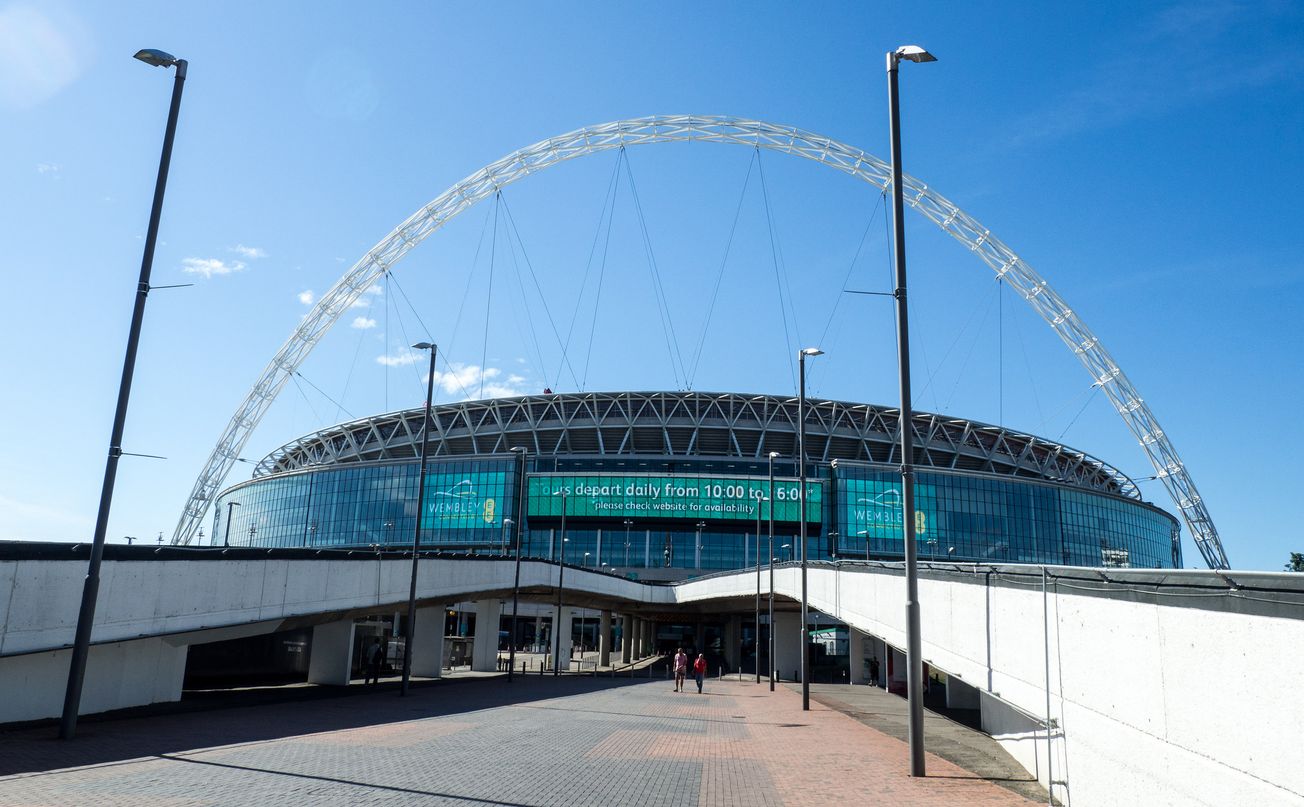By James Hall, third year Law student
Billionaire Shahid Khan has cancelled his plans to purchase Wembley Stadium, citing fears that he lacks support.
The issue has called into question the integrity of the beautiful game, with many perceiving the deal as the high watermark of the rampant commercialisation shaping the landscape of modern football. Contrast that with England’s poignant World Cup campaign this summer, featuring a young, home-grown squad averaging twenty-six, and the dichotomy is clear.
Khan's bid evoked in some fans angry images of selling off the family silver, or indeed the Crown Jewels. Wembley’s sale would further bifurcate supporters already questioning their role in a modern game characterised by clubs and players more concerned with their brand than their play. Wimbledon’s move to Milton Keynes sticks firmly in the mind. It's a fear quite possibly well founded; the Fulham owner's other franchise, NFL side Jacksonville Jaguars, have been looking to expand their presence in the capital since they began playing one fixture per season at Wembley five years ago. Though representatives deny that the Jaguars are seeking a permanent move to London, it’s certainly been on the cards for a while according to NFL executive Mark Waller.
Statement by Mark Waller, NFL Vice-President of Events and International, on potential purchase of Wembley Stadium by Shad Kahn. pic.twitter.com/4kCyVQxXWI
— NFL UK (@NFLUK) April 26, 2018
On the other hand, Khan’s calls for ‘logic’ to prevail over ‘initial emotion’ are not unfounded. His purchase would have released funds that could be spent on reviving the nation's grassroots facilities, of which many are marred by budget cuts. It is thought that the FA board were ready to rubber stamp the deal, despite significant opposition from swathes of the Association's 127-strong council. This opposition was stated by Khan as a decisive factor in his withdrawal.
But perhaps he misses the point. After all, is football not about emotion? The drama on the pitch and the action in the stands. England’s recent fixture with Croatia, played behind closed doors was surreal, all but resembling a training match. Only a smattering of away fans, perched on a nearby hill, watched the three lions struggle to a 0-0 draw, singing all the while. In a game where players were privy to coaching information from both sides, the voice of fans was sorely missed.
That ‘ghost game’ was a jarring reminder of the impact of football supporters. Indeed, Ben Chilwell’s senior debut will doubtless have been a proud night for him, but belting out the national anthem to an empty stadium, he’d be forgiven for looking for a friendly face in the crowd; instead he was met with rows on rows of empty chairs. In the hyper-commercialised era of billion pound TV deals, it’s almost easy to pass over the wishes of those paying to watch their heroes.
Though the FA's retention may be heralded by some as victory for tradition within the English game, is tradition still where football's interests lie? Should the people or the profits be prioritised? Now that the sale has fallen through, attention can turn to fans, and the grassroots game. With ticket prices rising and numbers of amateur teams plummeting, the spectre of football's commercialisation roams on.
Featured image by Flickr / Andrew Dupont
Are you pleased that the sale of Wembley fell through or is this just a single victory for football fans in an increasingly money-orientated sport? Let us know!









